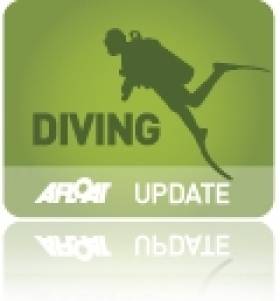Displaying items by tag: Great Barrier Reef
‘Widespread’ Coral Bleaching Event at Great Barrier Reef
The Great Barrier Reef in Australia has suffered what’s being described as a “widespread” bleaching event, as TheJournal.ie reports.
Images captured from the air by the authority in charge of the Unesco World Heritage site reveal damage ranging from “minor to severe” across the coral reef, caused by higher-than-usual ocean temperatures off Queensland in Australia’s northeast.
Coral bleaching is when normally vibrant coral turns white after expelling algae that live inside its tissue. It’s usually caused by environmental stresses such as a rise in average temperature by as little as a few degrees.
While bleached coral is still a living marine organism, the loss of its algae means it’s much more vulnerable to starvation and disease.
TheJournal.ie has much more on the story HERE.
Brady Feels At Home in the Water
Irish musician Paul Brady has confessed to a second love - scuba diving.
The 'Nobody Knows' hitmaker explained to The Irish Times how he had "always felt at home in the water" since a young age, and did his first diving course in 1988.
But frustrated by diving's weather dependancy here, he started going abroad - beginning in the Red Sea in the late 1980s before taking in the world's top diving spots, from Hawaii to the Cayman Islands and Australia.
Brady says he prefers to dive in private groups "off the beaten track" as commercial operators don't often visit the best sites - citing the Great Barrier Reef as an example.
As an experienced diver, he's has his fair share of bumpy moments down below, such as getting caught in a down draght in the Red Sea near Ras Mohammad - but says his training made all the difference.
As for why he loves diving? "It's a bit like floating in air," he says.
Read more of the Irish Times' interview with Paul Brady HERE.





























































